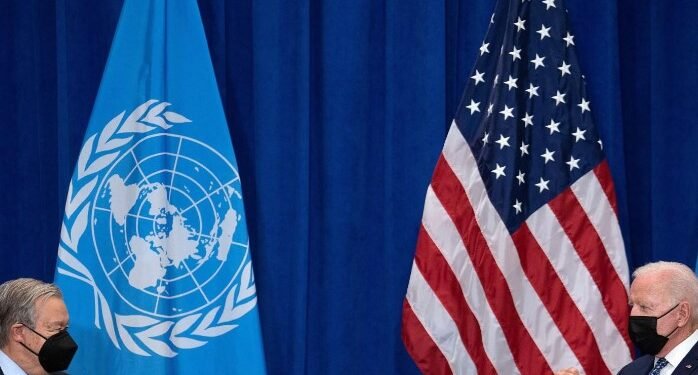Growing alliances among adversarial nations are sparking concerns within the United States, as geopolitical tensions escalate and longstanding global dominance is increasingly challenged. Recent developments show that countries like China, Russia, and Iran are forging deeper diplomatic, military, and economic ties, presenting a united front in opposition to Western influence.
Contents
- 1 Emerging Alliances Signal a Shift in Global Power Dynamics
- 1.1 Related posts
- 1.2 Bail Bonds 101: A Step-by-Step Guide for Families and Defendants
- 1.3 New Polls Show Ghana’s Opposition Leader Poised for Victory in Upcoming Presidential Election
- 1.4 England’s Earps Breaks New Ground as the First Female Footballer Honored at Madame Tussauds
- 1.5 Referee David Coote Suspended by PGMOL Following Alleged Verbal Abuse of Liverpool and Klopp in Video
- 1.6 UK’s Starmer Set to Meet Macron in France to Strengthen Ukraine Support Following Trump Victory
- 1.7 Biden Extends Congratulations to Trump, Extends White House Invitation
- 1.8 Trump’s return to power fueled by Hispanic, working-class voter support
- 2 Military and Economic Collaboration in Focus
- 3 Implications for U.S. Global Strategy
Emerging Alliances Signal a Shift in Global Power Dynamics
In the face of U.S.-led sanctions and strategic pressure, adversarial nations are bolstering their relationships through cooperative efforts that range from defense agreements to energy deals. China and Russia have significantly deepened their economic ties, while Russia has turned to Iran for military equipment and support, particularly as it navigates the ongoing conflict in Ukraine. These partnerships are seen as part of a larger strategy to counterbalance Western power and promote a multipolar world.
Military and Economic Collaboration in Focus
One of the primary areas of concern for the U.S. is the increasing military collaboration among its adversaries. Joint military exercises between China, Russia have become more frequent, while reports of Russia receiving military drones and weapons from Iran highlight the depth of these alliances. This military cooperation is not only strengthening these countries’ defensive capabilities but also providing a platform for them to project power in their respective regions.
Implications for U.S. Global Strategy
The growing ties among U.S. adversaries are forcing a reassessment of American foreign policy and strategy. U.S. officials are increasingly focused on countering this growing axis of opposition through diplomacy, military presence, and economic sanctions. There is also a push to strengthen relationships with traditional allies and build new partnerships, particularly in regions like the Indo-Pacific, where China’s influence is expanding.
Read more also:- Scholz Avoids Another Defeat to Far-Right in German State Election

















